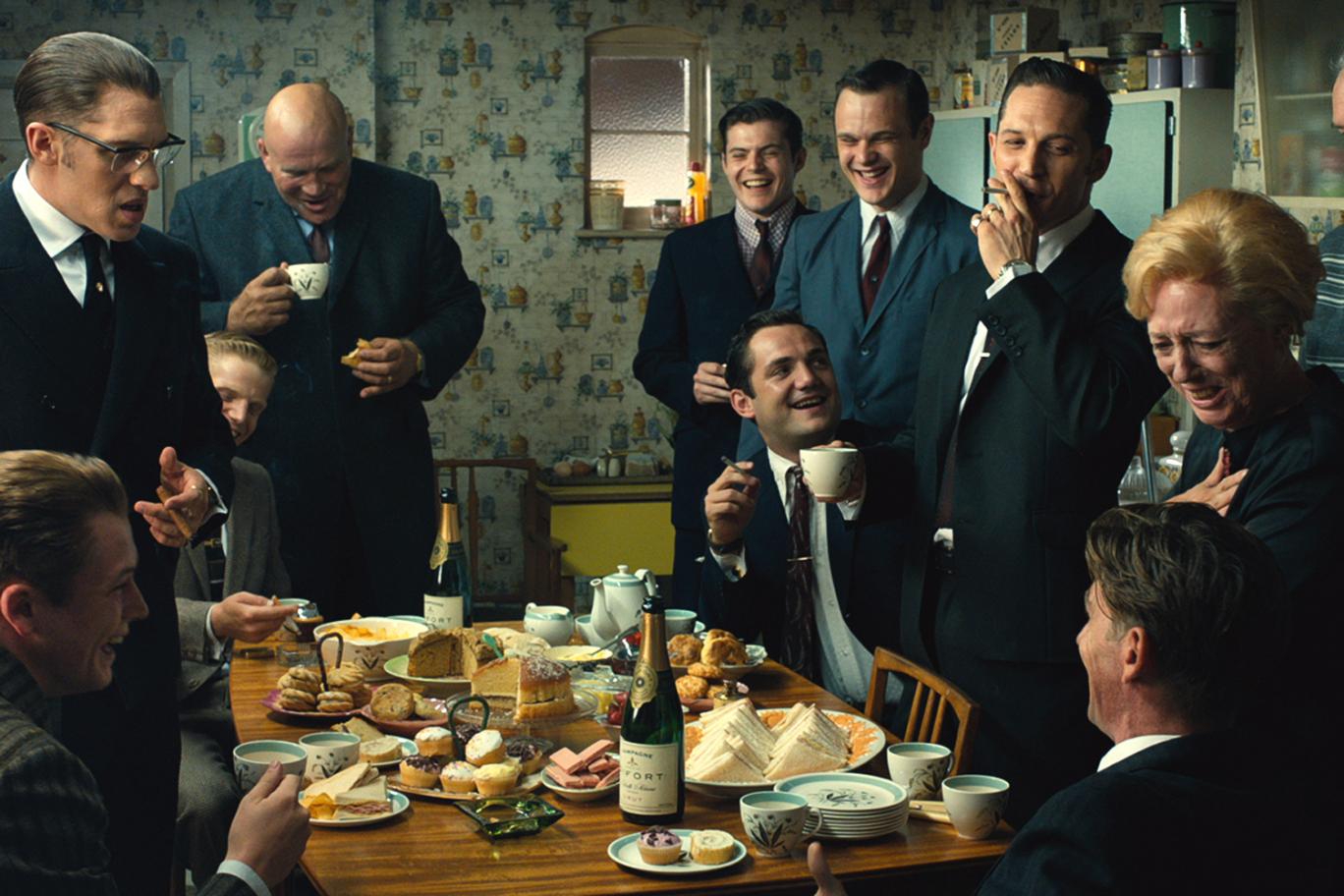The Kray Twins were gangsters from London’s East End who achieved the sort of celebrity most criminals would be wise to avoid.
Twin story-lines
During the swinging 1960s, Ronald and Reginald Kray were a permanent fixture on the London landscape with much of the ostensibly legitimate arm of their empire, such as bars and nightclubs, attracting custom from all levels of society. Despite their notoriety, the brothers were frequently photographed with famous actors, musicians and politicians.
Legend is an adaptation of The Profession of Violence by official Kray biographer John Pearson. Focusing primarily on ‘Reggie’ (Hardy), the narrative balances his courtship of emotionally vulnerable local girl Frances Shea (Browning) with his attempts to curb his psychotic brother’s deteriorating mental health.
Channels Reg, wet flannels Ron
The film opens with Reggie swaggering, fully aware Scotland Yard are trailing him, glad-handing old ladies and young mothers as he walks. It’s quickly clear that Hardy is an excellent fit for this role, ably charming and threatening in equal measure.
But as the openly homosexual psychopath Ronnie, Hardy seems less assured, approaching him in a more facile manner. Perhaps through no fault of Hardy’s, Ronnie’s mental issues and his sexuality have, instead of enriching the character, been allowed to define the character – reducing Ronnie to his contradictions. Reggie, on the other hand, is richer, fuller and afforded more complexity.
In the scenes in which he plays opposite himself, Hardy is spellbinding – particularly one that culminates in the twins engaging in a messy fist fight. In this respect the film is technically flawless.
Lots of Chazz, but no Dave
Yet, for all its merit, Legend has a lot working against it. Its cartoon tone makes it difficult to engage with seriously (something we are surely meant to do), for while Hardy’s performances are the best reason to see this film, they inevitably lend an inappropriate air of absurdism to the proceedings. His portrayal of Ronnie in particular borders on caricature, leaving his Reggie to fill the role of the straight man (literally).
The tone pervades throughout. For example, there are scenes featuring a mobster (Chazz Palminteri) who shows up with a map of Italy etched on his face, who is intent on forging a transatlantic partnership between London and Las Vegas. The impression one gets is of Saturday Night Live doing a Guy Ritchie/Martin Scorsese mash-up.
As clichéd as its imitations
While US writer/director Brian Helgeland (writer of LA Confidential) may have found the characters and period exotic, he chose to employ two of the most tired clichés of the genre.
Firstly, he’s crafted another ‘true story’ biopic that leans too heavily on its protagonist’s love interest; and secondly, it’s a gangster film that focuses on two brothers: one a smooth operator with a head for business (and a mind to eventually go legit) and the other an unpredictable psychopath whose hotheaded lunacy threatens to ruin everything they’ve built.
Most gangster films fit into one or both of these templates, but the East End setting lends the further familiarity of every British gangster film since Lock Stock and Two Smoking Barrels.
Beyond the entertaining gimmick of watching Hardy vs Hardy, this second re-telling of the Kray brothers’ lives on film needed to be an idea so fresh that it demanded to be made and seen. Instead we get the kind of undemanding mediocrity that has dogged the British crime genre for two decades. Given the talent involved and the rich subject matter, there is little excuse.













